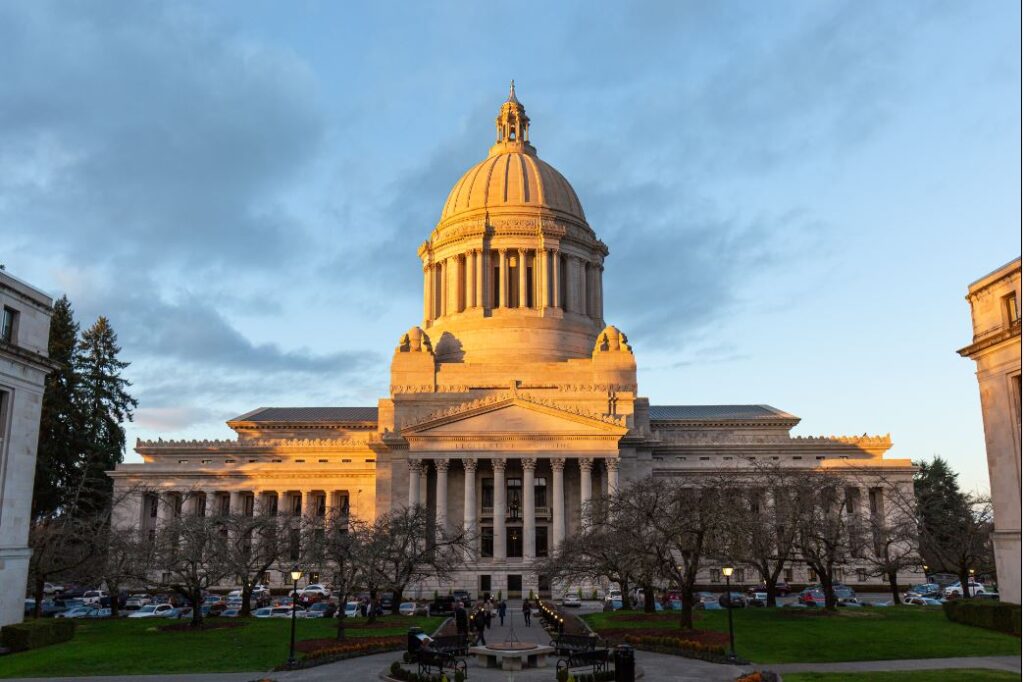Bill is part of plan to streamline disclosure, make transparency a priority
OLYMPIA – Responding to complaints that the Washington Legislature doesn’t care about public records issues, Sen. Jeff Wilson, R-Longview, has introduced a bill that aims to revitalize the state’s ‘Sunshine Committee.’
Senate Bill 5779 is the first element in a Wilson plan to make public records issues a priority for Olympia. Earlier this year, the Legislature’s advisory committee on public records considered a proposal that would have disbanded the panel, as frustrated members complained of years of legislative indifference. Although the Sunshine Committee voted to stay and fight another day, Wilson said lawmakers need to pay attention.
“The message came through loud and clear,” Wilson said. “Public records advocates are feeling ignored, and I can’t blame them. We keep talking in the Legislature about our support for open government and transparency, and then we turn around and find new excuses to keep government records out of public view. We need to strike a better balance. We can start by giving the Sunshine Committee a stronger platform and taking a more systematic approach to disclosure issues.”
Washington voters approved the state’s expansive public records law in 1972, requiring that state and local government agencies disclose records upon request. By 2007, the Legislature had approved some 300 exemptions from the law. Growing complaints from the press and public records advocates led lawmakers to create the Sunshine Committee in 2007, formally known as the Public Records Exemption Accountability Committee.
The panel gave public records advocates a forum to complain about the trend, but it didn’t change it. Sixteen years after the committee’s creation, the number of exemptions has doubled.
“You can look at each of these exemptions individually and understand why they were passed, even if you might not agree,” Wilson said. “For instance, I think everyone would agree that home addresses for law enforcement officers should be withheld, to protect police and their families from retaliation. But there are other exemptions where the rationale is more questionable. The Sunshine Committee is designed to review these exemptions, and when it makes recommendations, the Legislature should listen.”
Wilson represents the Senate Republican Caucus on the Sunshine Committee. He was the only legislative member who showed up for the meeting last March when the advisory panel debated its continued existence. Wilson urged members to give the Legislature a chance. Over the summer and fall, Wilson conferred with press and public records advocates as he developed his plan.
- Sunshine Committee: Under current law, the Sunshine Committee makes an annual report to the Legislature, the governor and the attorney general’s office. Wilson’s bill would require that the Sunshine Committee deliver its report in-person during meetings of the relevant committees of the House and Senate. The bill also would change the panel’s meeting schedule from quarterly to four-times-a-year, making it easier for legislative members to attend and participate.
- Funding and staffing: Wilson also will offer a proviso for the 2024 supplemental budget, providing funding for the attorney general’s office to provide staff support for the committee. By specifically earmarking funds for the purpose, the proviso would establish an expectation for staff support, Wilson explained.
- Modernizing public records disclosure: Another Wilson bill, soon to be introduced, would create a pilot project for swift disclosure of frequently-requested public records. Agencies would review documents in advance and make them available online. This would reduce the need for formal Public Records Act requests, reducing burdens on staff and wait times for the public.
Wilson’s plan does not address another long-running public records dispute. The Washington Supreme Court ruled in 2019 that individual legislators’ offices are subject to disclosure rules. A current lawsuit challenges a constitutional provision allowing lawmakers to withhold records revealing internal legislative deliberations regarding bills contemplated or introduced in the Legislature.
“I can’t comment on the ‘legislative privilege’ lawsuit, because that is a matter of current litigation,” Wilson explained. “But that’s just one facet of the public records issue. Public access to government records is important, and these proposals are a good place to start.”









